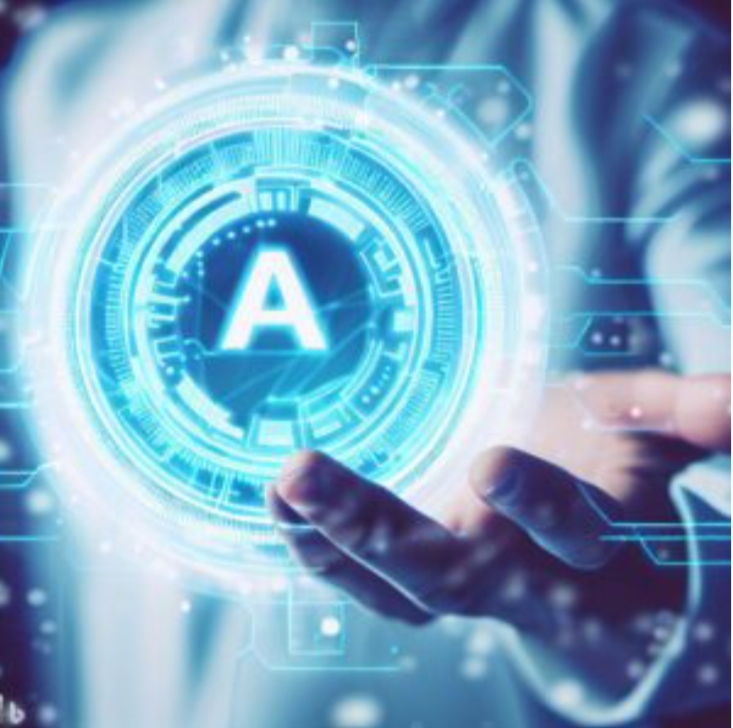Fundamentally, artificial intelligence (AI) is the replication of human intellect in machines, allowing them to carry out tasks that ordinarily call for human cognitive functions. Reasoning, problem-solving, learning, comprehending natural language, and situational adaptation are some of these tasks. A branch of AI known as “machine learning” enables systems to get better over time by inferring knowledge from data without explicit programming.
In today’s rapidly evolving technological landscape, the term “Artificial Intelligence” has emerged as a revolutionary force driving innovation across various industries. From healthcare to finance, from manufacturing to entertainment, AI is reshaping the way we perceive and interact with the world around us. In this article, we’ll delve into the exciting realm of AI and explore its profound impact on different sectors.
Transforming Healthcare with AI
Thanks to AI integration, the healthcare industry has made significant advancements. AI algorithms’ rapid analysis of huge datasets has improved the precision and efficacy of medical diagnosis and treatment planning. AI systems that use machine learning can spot patterns in medical photos to help with the early diagnosis of diseases like cancer. Additionally, robotic procedures powered by AI are reducing human error and improving surgical precision.
Revolutionizing Finance through AI Insights
In the financial realm, AI is not merely a buzzword but a game-changer. Investment firms are employing AI-driven algorithms to predict market trends and optimize investment portfolios. Fraud detection systems utilize AI to scrutinize vast transaction records, swiftly flagging suspicious activities. Chatbots powered by AI are enhancing customer service experiences in the banking sector, providing instant assistance around the clock.
AI’s Industrial Impact: Enhancing Manufacturing
Manufacturing has undergone a renaissance with the integration of AI technologies. Smart factories equipped with AI-driven systems can predict maintenance needs, preventing costly downtimes. Collaborative robots, or cobots, work alongside human workers, augmenting efficiency on the production floor. AI algorithms optimize supply chains, minimizing waste and ensuring just-in-time production.
Embracing AI in Education
With the incorporation of AI, the educational landscape is likewise going through a paradigm shift. AI-powered personalised learning platforms adapt instructional content to the specific needs of each student. Virtual instructors powered by AI offer rapid feedback and support, promoting a more interesting and productive learning environment. Additionally, data analysis using AI enables educators to pinpoint student-specific intervention areas for improved results.
The Creative Canvas: AI in Entertainment
Even in the realm of creativity, AI has found its footing. Content streaming services leverage AI to analyze user preferences and recommend personalized content. In the film industry, AI algorithms assist in visual effects rendering, bringing fantastical worlds to life. Music composition and recommendation platforms employ AI to understand musical patterns and deliver tailored playlists to listeners.
AI in Environmental Sustainability
Addressing environmental challenges is another arena where AI shines. AI-powered sensors and data analysis aid in monitoring pollution levels, deforestation, and climate change patterns. Predictive modeling through AI enables researchers to anticipate natural disasters and plan evacuation strategies, minimizing loss of life. The marriage of artificial intelligence and environmental conservation offers hope for a greener, more sustainable future.
Ethical Considerations and Future Outlook
Ethical questions have surfaced as AI permeates more industries. Discussions regarding responsible AI development have been sparked by concerns about data privacy and job displacement due to automation. It continues to be difficult to strike a balance between technical development and societal well-being.
The future potential of artificial intelligence seems limitless. Unimaginable discoveries are expected to result from ongoing study and innovation. The convergence of human brilliance and AI power is opening the door to a future in which the impossibly is made conceivable.
Conclusion
In conclusion, artificial intelligence has a significant impact on a variety of industries across a wide range of fields. The list of industries includes a lot more than just manufacturing, banking, healthcare, and entertainment. Our society will be affected more and more as AI develops, ushering in an era of unrestricted invention. Gaining full access to AI’s potential for the advancement of humanity will depend on how ethically sensitively this technology is adopted.

